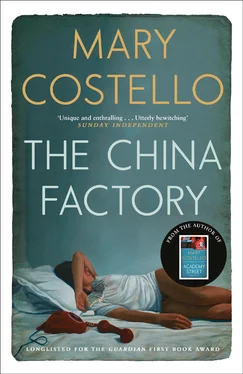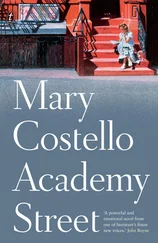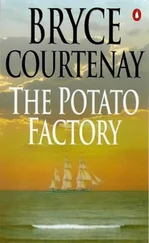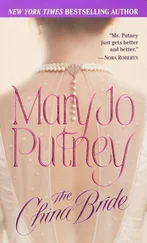Mary Costello - The China Factory
Здесь есть возможность читать онлайн «Mary Costello - The China Factory» весь текст электронной книги совершенно бесплатно (целиком полную версию без сокращений). В некоторых случаях можно слушать аудио, скачать через торрент в формате fb2 и присутствует краткое содержание. Год выпуска: 2015, Издательство: Canongate Books, Жанр: Современная проза, на английском языке. Описание произведения, (предисловие) а так же отзывы посетителей доступны на портале библиотеки ЛибКат.
- Название:The China Factory
- Автор:
- Издательство:Canongate Books
- Жанр:
- Год:2015
- ISBN:нет данных
- Рейтинг книги:5 / 5. Голосов: 1
-
Избранное:Добавить в избранное
- Отзывы:
-
Ваша оценка:
- 100
- 1
- 2
- 3
- 4
- 5
The China Factory: краткое содержание, описание и аннотация
Предлагаем к чтению аннотацию, описание, краткое содержание или предисловие (зависит от того, что написал сам автор книги «The China Factory»). Если вы не нашли необходимую информацию о книге — напишите в комментариях, мы постараемся отыскать её.
In these twelve haunting stories award-winning writer Mary Costello examines the passions and perils of everyday life with startling insight, casting a light into the darkest corners of the human heart.
The China Factory — читать онлайн бесплатно полную книгу (весь текст) целиком
Ниже представлен текст книги, разбитый по страницам. Система сохранения места последней прочитанной страницы, позволяет с удобством читать онлайн бесплатно книгу «The China Factory», без необходимости каждый раз заново искать на чём Вы остановились. Поставьте закладку, и сможете в любой момент перейти на страницу, на которой закончили чтение.
Интервал:
Закладка:
He stares at her. She has been doing this lately, pulling up old memories that rattle him.
‘It was frightening,’ she says. ‘It happened when she got upset… She’d cry and cry and get worked up into a terrible state… and her eyes would roll back in her head… And then she’d just fall off unconscious.’
He was up on the tractor and mower in the middle of a meadow one day when she came running out with the child in her arms, the head flopping as she ran. He jumped down and took her and laid her on the ground. He thought the stubble on her bare arms and legs would prod her back to life.
‘Do you think we neglected her?’ Marie asks suddenly.
‘No, no, we did not. Didn’t you bring her to the doctor?’
She nods. ‘He had some name for it — some emotional condition — he said she’d grow out of it, and she did, after a year or two.’
They were kneeling over her that day. Her eyelids moved and when she opened her eyes she had a terrible look. He thought she must have seen things she couldn’t bear. She whispered Daddy .
The radio is on low and the presenter is reading out the local death notices.
‘“Scarlet Ribbons”,’ he says, half to himself.
She looks over at him.
‘That’s what she used to play on the piano, “Scarlet Ribbons”,’ he says. ‘She learned it off that Jim Reeves record.’
But Marie is gazing out the window. ‘She was always very impressionable. I was always afraid of who she might fall in with. I don’t know where she got it… all that fainting, all that feeling.’
On Sundays in August Marie would dress the girls in little summer dresses and pack a picnic and they’d all drive to Salthill. She’d get a faraway look in her eyes when the sea came into view. He thought she was remembering some American place — Coney Island, maybe. One weekend they went to his brother’s holiday caravan in Lahinch. The kids played all day and got sunburnt and she cooked a big dinner in the evening and they ate outside with the sun going down. While she was putting the kids to bed he walked over the dunes and stood looking at the sea. Dusk started to fall. Then she was beside him. They said nothing but walked along the water’s edge. They sat on the hard sand with the little waves almost touching them, then moving further and further out. After a long time they got up and walked back. The dark was coming down around their heads. When they got to the door of the caravan he thought they were different, a different man and woman. That night he had a dream that he was sinking into the sea and she was in a small boat with the moon above her head. He was crying out to her and her eyes were wet with tears but she could not put a hand out to him. The following winter he found her in the cow house one night, sitting on the steps, smoking, with the rain tapping on the galvanised roof and the cows stirring in the stalls around her. ‘What’s wrong with you?’ he said.
Maybe they should have gone to America. Maybe they would have been different people in America. He would not have lingered in fields on summer evenings or stood alone in the shed on winter nights, putting off going inside. He had put it to her once, before the wedding.
‘My uncle Johnny is in San Francisco,’ he said. ‘He sent word that one of us lads should go out to him and he’ll sponsor us. He works in the fire department. There’d be a good wage.’
She thought about it and then frowned. ‘They get earthquakes in California. I’d be afraid. My aunt Molly told me.’
He had never heard that. ‘I don’t know,’ he said. ‘I don’t think they’re dangerous.’
She looked out of the car window where they were sitting after a dance. ‘It would be like eloping. It wouldn’t look good.’
In the mid-morning Marie calls the surgery and then drives to town to keep the appointment. He walks to the front of the house and down the steps under the arched trellis with the pink roses. There are flowerpots on the windowsills, overflowing with pink and white flowers. He stands and looks at them. Lately, a strangeness has come on him. He sees and hears things that were once beyond him — the buzz of insects, the humming of electric cables, the blood drumming through his head. He gets flashes too — like the foxes under the hill — and one night he had a vision of all the animals he ever reared and sent off for slaughter, all standing before him on an open plain, looking into his eyes. He never tells Marie these things. He would like to, but he is afraid that it is too late. He wishes he had done something for her, some gesture, one big thing. Built her a house, maybe. Or planted an orchard. Or said something, one glorious thing — that her eyes remind him of a wolf’s and he loves wolves because they’re wild and lonesome, or that he is afraid for her all the time now, and himself too, and he cannot bear it when she leaves his side.
At the front gate he sees Christy Kelly, bucket in hand, crossing the road towards his yard.
‘You’re late milking her,’ he calls out, moving towards Christy.
‘Ah, I am, I am. Sure it’s only a hobby at this stage. No one inside there’ll touch a drop of it, when it’s not pasteurised.’
‘No. We didn’t have it pasteurised years ago and we did all right.’ The white cat comes down the steps and brushes against his legs. He bends down and strokes her. ‘I suppose you can always give it to the cats.’ The cat rolls on her back, exposing herself. He thinks of the little organs inside her belly.
‘Christ, no. I can’t abide cats.’
‘And what do you do with the milk so — when you have no calves to feed?’
‘I fuck it down the drain.’
He looks up at the sky. In the distance he hears a sheep bleat and all at once he is seized by its sound and last night’s dream returns to him. He is sick in a hospital bed, late at night. The door opens slowly and a little procession of lambs enters and his heart leaps and he is amazed and overjoyed at this miracle, and as he raises himself on his elbow the drip comes loose. The little procession marches to the edge of his bed and the first lamb is about to speak. He looks into the lamb’s eyes and starts to cry. Then Miriam is standing in the doorway, smiling because she has brought all the lambs to visit him, as if they are her children. She is holding a sickly newborn in her arms. She leaves it on the bed beside him, and goes to fix the tubes and when he looks up he sees that it is a nurse, and not Miriam, who has come to fix things. ‘I’ll just pop this back in again…’ she says and with a little flick of her wrist, she inserts the needle into the newborn lamb’s leg.
‘Marie feeds a few cats in there every morning,’ he says to Christy when he recovers himself. He gives a little nod in the direction of the white cat at his feet. ‘I think they’re company for her.’
‘Christ, she’ll only be drawing them around the place doing that,’ Christy says. ‘They’ll breed like anything.’ He waves his arm to hunt the cat away. ‘The bloody things are a nuisance. I came out from milking the cow a couple of mornings ago and left the bucket on the wall for a minute to wash my hands and when I turned around hadn’t one of them his big head within in it, drinking it? Well, if I had the gun handy I’d have shot the bastard… And that was the second or third time that happened. They’re filthy, you know, they carry every disease known to man.’
‘They keep the rats away at least.’
‘Ah, they do and they don’t.’
He walks around the back, the day stretching ahead. He wants something to happen but is afraid of what it might be. At the end of the yard he rests his arms on the top rung of the gate. He fills his pipe with tobacco and lights it and gazes at the cattle and the hills in the distance. They have not seen Miriam in five years. She’s afraid to fly now. He pictures her in Vancouver, with her friends. He draws deeply on his pipe and then bites on the stem and becomes agitated. When she was eighteen they had a falling out. He did not like the lad she was going around with during her first summer home from college. The lad’s father was a drunk and he knew enough about men and human nature to know that the lad, no matter how decent he was in his youth, would turn out like the father. When she skipped down the steps on a summer’s evening and got into the lad’s car and drove off, he couldn’t bear it. He lay awake at night waiting for her key in the door, demented. Marie said to let it go, that it might fizzle out in time. But then, on a night out in a town not far away, he came face to face with the father’s drunken leer. Who’s the big shot now? And then he laughed. Isn’t she the lovely girleen! We might be related yet, Mick .
Читать дальшеИнтервал:
Закладка:
Похожие книги на «The China Factory»
Представляем Вашему вниманию похожие книги на «The China Factory» списком для выбора. Мы отобрали схожую по названию и смыслу литературу в надежде предоставить читателям больше вариантов отыскать новые, интересные, ещё непрочитанные произведения.
Обсуждение, отзывы о книге «The China Factory» и просто собственные мнения читателей. Оставьте ваши комментарии, напишите, что Вы думаете о произведении, его смысле или главных героях. Укажите что конкретно понравилось, а что нет, и почему Вы так считаете.












